The topic of academic writing has been popular in the blogosphere and Twittersphere in the past couple of weeks. I think it all came from Stephen Walt’s Foreign Policy piece “On Writing Well“. Several fellow academics responded to Walt’s scathing critique of our scholarly writing (read Stephen Saideman, Jay Ulfelder, Dan Drezner, Marc Bellemare, Thomas Pepinsky, Greg Weeks, and I’m sure a few more that I missed. Yes, I also know that I linked to political science and public policy professors. There are two reasons for this. First, because they were the ones who responded to Walt’s critique and commented on it. Second, because I am largely trained as a public policy/political science scholar. I taught at a department of political science for 6 years and now I teach at one of public administration. My training comes largely from that academic field.
The above said, I have also written on this blog why I read widely, and across disciplines (I do the same on Twitter – I follow folks who are political scientists, educators, anthropologists, geographers, sociologists, computer scientists and mathematicians): because it broadens my learning spectrum, improves my writing skills, and enables me to write for very different audiences.

You’ll see: I write differently if I am submitting a paper to Policy Sciences (a public policy journal) than if I am sending it to Water International (an area journal focusing on water). I write differently for a human geography audience than I do for a political science one. That was the very first piece of advice my PhD advisor gave me on writing: write for your audience. And that is, I think, an element that was missing in Walt’s piece: we write for specific audiences. I write differently a policy advice report than I do a public policy scholarly paper. The audiences are different, as are the goals of each piece of writing.
I can’t claim to say that everything I have learned from academic writing came from my own experiences. I have been mentored and have learned from my former PhD advisor, from my former doctoral committee, other faculty members, and from other folks I read. So while not attributing them to each person who taught me each, here are my top tips on academic writing. This is what I do to improve my own writing and may be of value for those of you seeking to improve yours.
1. Be disciplined and write every day.
Every morning, I wake up anywhere between 4:45am and 5:30am, I start a pot of coffee, make my bed, turn on my laptop and start writing. I have been writing for 2 hours every single day of the week (Saturdays and Sundays included) for the past little while and it has done wonders for my writing. I added 85 single spaced pages to my book, and produced 120 single-spaced pages in the past couple of months or so. I’d say that’s good productivity.

2. Give yourself the best tools to write.
I grew up in an academic household, and thus my childhood bedroom also has a full-blown home office (complete with desktop computer and printer, and wireless internet). Because I travel to my parents’ city every single weekend to visit them, I know that I have the right setup to write. I also need to make sure that I have the tools to write anywhere I go, so I try to pack with me everything I need, including a paper holder. Recently, I bought a new computer chair for my home office at my parents’ place. I need to make sure that every piece of furniture I have enables my writing. Same goes for hardware and software. It was incredibly frustrating to have to switch computers because I only had EndNote in one of them (I now use Mendeley as a reference manager).

3. Write as you would speak (aka read aloud what you just wrote).
I remember that the first time one of my professors told me this I felt offended. I thought I wrote well! But as I have learned through time, if I write as I speak, my writing becomes clearer.
4. Have other people read your pieces to provide you with feedback.
This is a hard piece of advice to follow, as my writing often gets torn to pieces. It always comes out stronger, though. I learned (in this case, from my former PhD advisor) to take the feedback that people gave me to improve my writing. If I am not writing clearly, I need to work on how to write crisp, short, punchy, effective sentences.
5. Read a lot, and read across different disciplines.
My PhD itself is interdisciplinary, and the theoretical and analytical frameworks that I built for my doctoral dissertation borrowed from literature in anthropology, sociology, planning, human geography, chemical engineering. I’m a multi-methods guy, and I have done everything from institutional ethnography to GIS to social network analysis to structural equation modeling. I’m always on the lookout for innovative research methods. To this end, I read a lot (which of course takes a lot of time, I recognize) and I read across a variety of disciplines. Reading does improve your writing, as it enables you to see how other folks frame their thoughts and communicate them.
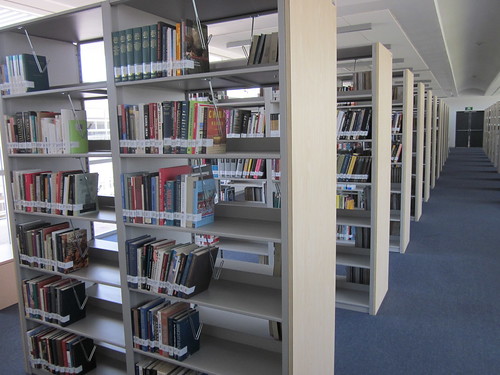
6. Write for your audience.
Your writing style will vary if you write on a blog (like this one) to communicate to a broader audience than if your audience is policy-makers who need brief, concise analytical summaries of the literature and calls-to-action. You will be writing differently for your doctoral committee or for a political science journal than for an anthropology one. But always try to write clearly.
7. Write without interruptions
This is hard in today’s academic lifestyle: we are required to do more (because many administrative tasks like grant management, budget creation and day-to-day expense-tracking are being offloaded on to us). We also need to prepare lectures, write slides, design curricula, participate in committees, advise students, provide them with feedback on their writing. To counter this, I write in the morning (very early), and later in the afternoon/evening or late at night. I always make sure that nobody interrupts me (although when I’m visiting my parents doing this is sometimes hard as this is the only time we get to chat. When this is the case, I make sure to write late at night or very early in the morning so that I can hang out with them the rest of the day.

8. Take care of yourself.
This is a very obvious one, but one that many academics fail to take into account. How does taking a break from writing (and from academic life) every so often help you write better? You can refresh your mind by exercising and taking care of your health and body. Your writing will improve if your health improves as well (and of course, if you devote time to it!)
9. Practice your writing. Write a lot.
And by write a lot, I don’t mean answer dozens of emails. Write lots of generative text, so that you can in turn shift around, rewrite, re-order and re-read your sentences and find ways to make them stronger. Recently, as the text of a book chapter that included lots of theory and lots of empirical research started growing longer than the length I had allowed, I realized that I could split it into one theoretical book chapter, and 2 empirical journal articles. I started with just one document, and I split enough text into three drafts that I now have the foundations of 3 pieces instead of just one. I do not feel that any of the writing I did was wasted at all.
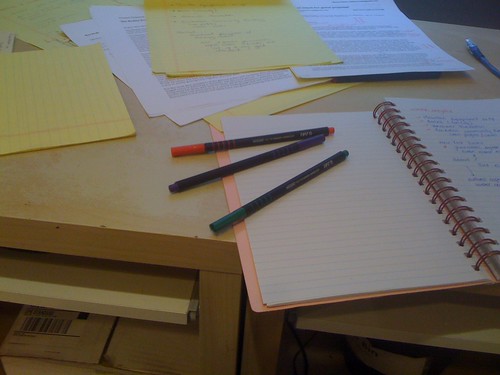
10. When stuck, write by hand.
This piece of advice comes from someone who is a fan of online collaborative tools. I clip documents on Evernote all the time, upload PDFs to Mendeley for later reading and inserting citations into my writing and use Dropbox to share research with my collaborators, students and research assistants. So you may be surprised when you read that when I am stuck (and sometimes, even not when I am stuck but when I am writing a paper or an article) I write by hand. I particularly write by hand when I am creating new ideas or line-editing or when I need to fill gaps in my arguments.

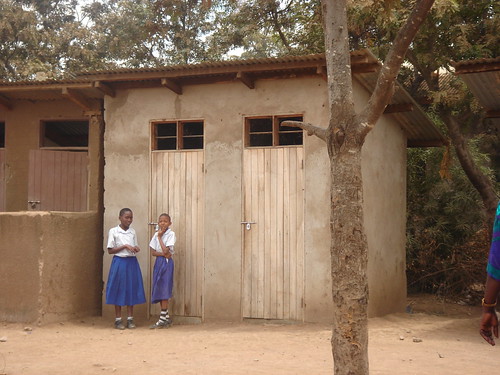










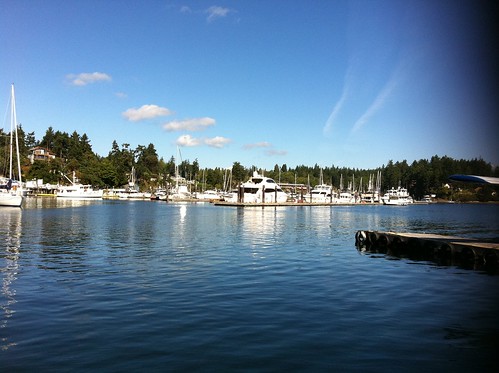
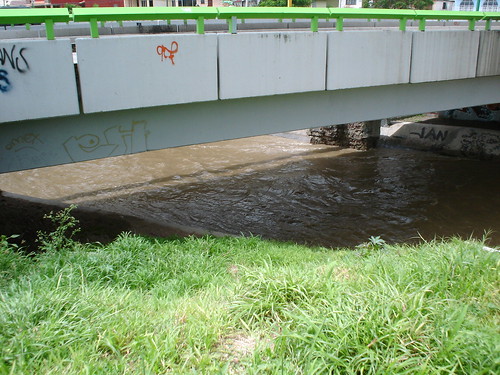



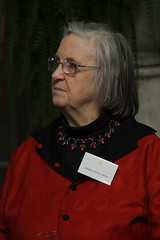
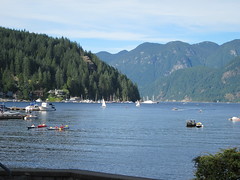




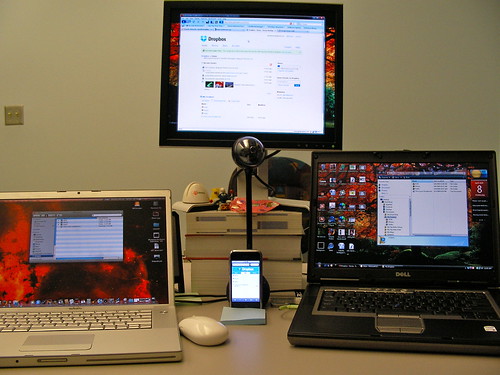


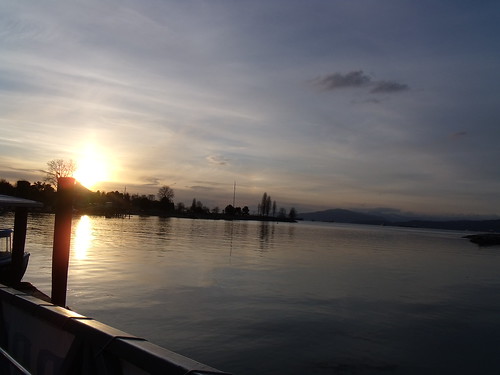


Recent Comments